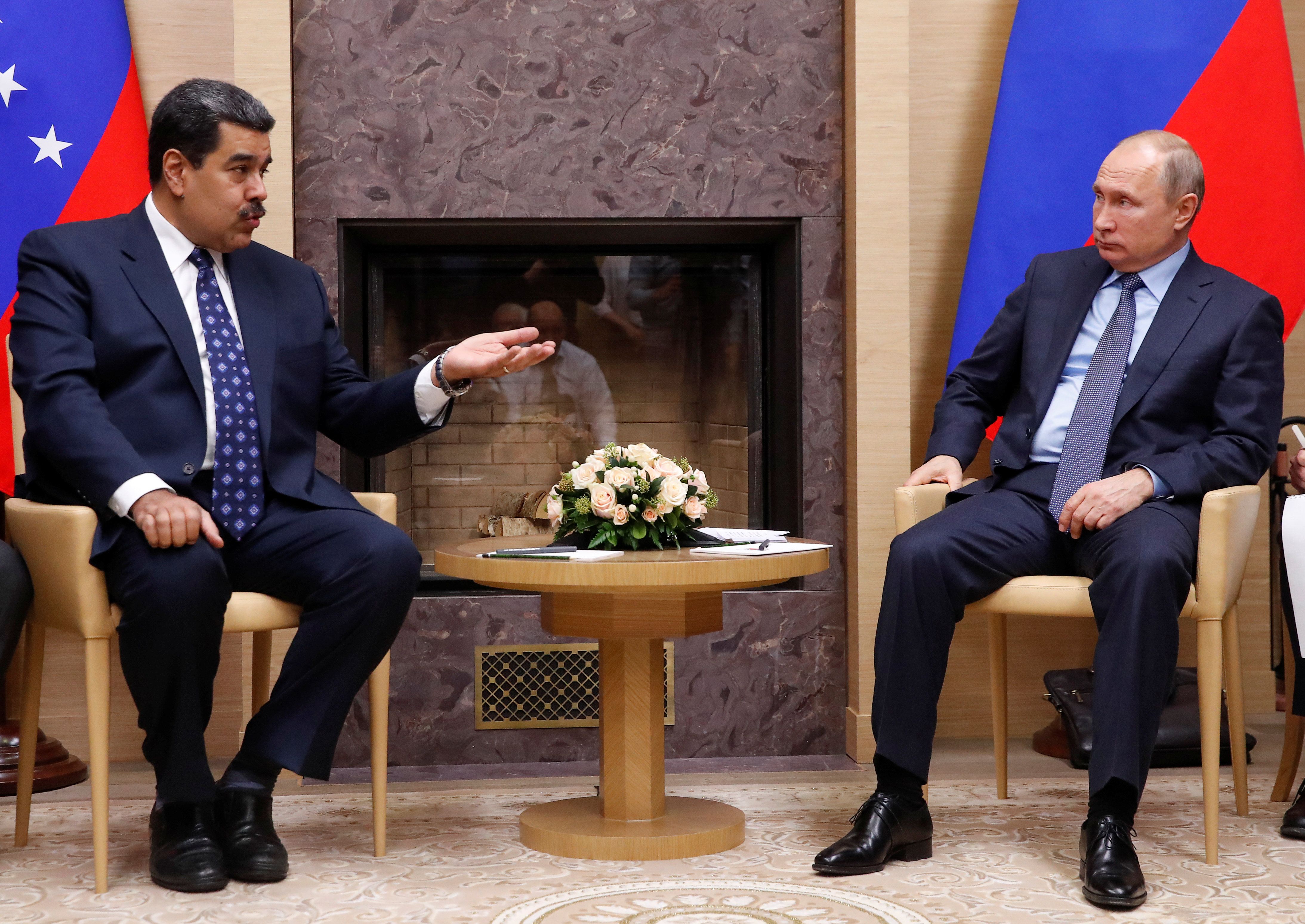June 03, 2019
Is Moscow Dropping Maduro?
Moscow has removed the bulk of its defense advisers from Venezuela, because the cash-strapped regime of Nicolas Maduro can't pay them, according to a report in the Wall Street Journal yesterday. Adding to the intrigue, later in the day, President Donald Trump cryptically tweeted that he'd received word from Russia that "most of their people" had left the South American nation. The Kremlin's support has been crucial for Maduro – who has so far faced down a challenge from opposition leader Juan Guaido – and until now, Venezuela has spent a lot of money on Russian weapons. But if the cash is running dry and Moscow's support is fraying, will this alter Maduro's calculus? More importantly, will it alter the calculus of the generals whose continued support is keeping him in power?
Weather Report from the new "Arab Spring": Shots fired, elections cancelled
Earlier this spring, popular protests in both Sudan and Algeria ousted strongmen who had ruled for decades, creating hope for change in two countries burdened with notoriously repressive regimes. But in both cases, the military men who propped up those regimes have held on to power, angering street protesters who want systemic change rather than just a change of faces at the very top.
Over the weekend, that difference of aims turned deadly in the Sudanese capital, when soldiers opened fire on protesters who have camped outside the military's HQ for two months demanding a swift transition to civilian rule. Meanwhile, in Algeria, an interim government made up of old regime figures cancelled fresh elections scheduled for next month after hundreds of thousands poured into the streets to denounce them as a regime-controlled sham.
What we're ignoring
Reports about the purge or execution of North Korean officials – Last week, a South Korean paper quoting a single source reported that North Korean leader Kim Jong-un was so annoyed at the failure of his Hanoi summit with Donald Trump that he'd executed several of his nuclear negotiators and sent his top diplomat, Kim Yong-chol, to a re-education camp. Plausible enough for a guy who's reportedly executed dozens of people, including his own family members. But then, over the weekend, North Korean media showed Mr Kim (the diplomat) seated contentedly alongside Dear Leader Kim at a concert. Either his stint in the camp provided him a remarkably quick reeducation or this is a reminder that it's almost impossible to know what is really happening inside a society as grotesquely repressive and secretive as North Korea'sMore For You
With close ties to both the US and China, can Singapore survive in an increasingly fragmented and chaotic world? Singapore’s President Tharman Shanmugaratnam joins Ian Bremmer on the GZERO World Podcast.
Most Popular
Think you know what's going on around the world? Here's your chance to prove it.
UK Prime Minister Keir Starmer shakes hands with Chinese President Xi Jinping, ahead of a bilateral meeting in Beijing, China, on January 29, 2026.
Carl Court/Pool via REUTERS
This week, Prime Minister Keir Starmer became the first UK leader to visit China in eight years. His goal was clear: build closer trade ties with Beijing.
Igmel Tamayo carries charcoal to sell on the side of a road for use as cooking fuel in homes, after US President Donald Trump vowed to stop Venezuelan oil and money from reaching the island as Cubans brace for worsening fuel shortages amid regular power outages, on the outskirts of Havana, Cuba, on January 12, 2026.
REUTERS/Norlys Perez
© 2025 GZERO Media. All Rights Reserved | A Eurasia Group media company.
